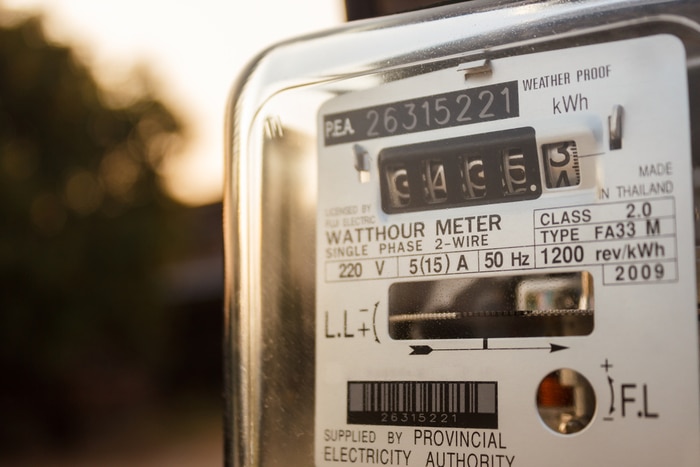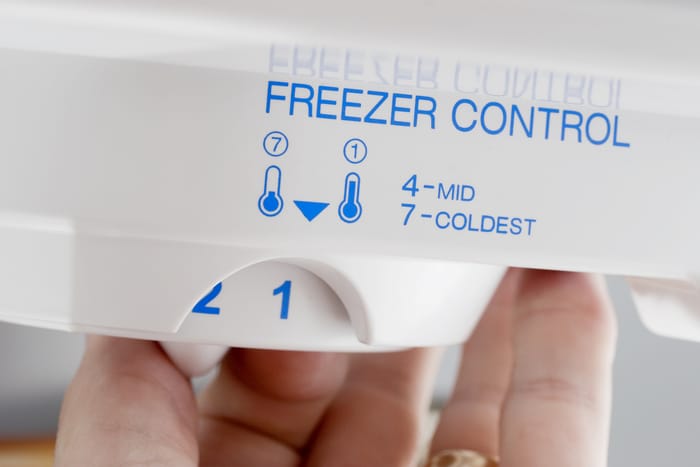Wondering how chest freezers stack up against deep freezers?
Kudos for your curiosity! A big part of becoming an expert in DIYs and successful troubleshooting is understanding the main differences between appliances and how they work.
You might be looking into this because you’re about to purchase a new freezing unit for your home, or maybe it’s a doubt you’ve had in the back of your mind since High School. Either way, you’re about to find out.
Below, I’ve prepared a list including the 5 most important factors to take into account when doing this comparison, so you can go to sleep tonight with your most burning questions answered.
The main things we’ll go over in this comparison are storage capacity, power consumption, and temperature controls. Also, we’ll cover other aspects of each appliance, such as maintenance requirements, and of course, pricing.
Is There Really a Difference?
Before delving into the individual elements and doing the actual comparison, it’s critical that we answer this question, as it seems to be a big source of confusion.
In a nutshell, no. Chest and deep freezers are not two different appliances with different capabilities (in most cases). However, while they’re almost the same in terms of fulfilling the same purpose, there are differences in their design.
Chest freezers are considered deep freezers, but so are upright freezers. They both work at an average temperature of 0 degrees Fahrenheit (ca. -18 °C) and should be able to keep your precious groceries frozen. That being said, upright models excel in some things and lack capabilities in others, and the same goes for their chest counterparts.
Having cleared that up, let’s dive into the actual comparison!
#1 Storage Capacity
Let’s start off by talking about one of the most common questions people ask themselves before buying these appliances: “can this hold all my food?”.
Unless you’re trying to freeze an entire bison, the answer to that question will most likely be yes; however, there’s a catch. Upright deep freezers typically have less storage space, as they have shelves, which is not the case for their chest counterparts.

This does not only mean that you’ll be able to put more things inside the chest variant, but also that it will be more difficult to fill the appliance over the limit, which is known to cause issues.
Now, as I said earlier, this will only be an obstacle if you’re in the habit of freezing pounds upon pounds of meat or produce. If that’s not the case, either model will do the job wonderfully.
#2 Power Consumption
Next, let’s talk about how much power each freezer draws, as this should also be a determining factor when purchasing a new appliance.
In this regard, you might be surprised to learn that chest deep freezers are more power-efficient than their upright counterparts, but probably not for the reason you think. You see, it’s not that one variant draws more power than the other by nature, but rather that the overall design of chest freezers allows for better isolation and temperature control.
Therein lies the difference.

To make this clearer, let’s quickly go over how a freezer works. In a nutshell, the appliance uses a series of coils and a component called a compressor that pumps a liquid called refrigerant through the unit. This cools down the compartment and freezes the food inside it by dissipating heat.
The more heat that needs dissipating, the harder the freezer has to work, and the more power it draws. Since chest freezers are typically better at keeping exterior heat away from whatever’s inside their compartment, they require less power to maintain their 0 °F (ca. -18 °C) temperature.
So, if you’re looking for a lot of storage space and decent savings on your monthly electricity bill, a chest freezer is the way to go.
#3 Temperature Controls
Moving on, let’s also discuss how each variant of the appliance can have different temperature controls and settings.
While not very common, there are some upright deep freezers (typically professional-grade ones) that offer the possibility of setting each one of their selves to a different temperature. This is achieved through different dials, so you can adjust them to your liking.
Having a feature like this might sound great if you often find yourself in the need to get the most precise control while freezing. However, if you’re looking for simplicity, it might just stand in the way.

Chest deep freezers, on the other hand, are much easier to use, as they typically only have one temperature control dial. Moreover, by maintaining a single temperature on the entire compartment of the appliance, it’s less likely that you’ll be using more power than needed to keep your groceries frozen.
Clearly, there’s no winner in this section, as one might be better for you than the other depending on what your specific needs are.
#4 Maintenance Requirements
Let’s face it, the one part that no one likes about owning an appliance is having to give it maintenance at least a couple of times per year. It’s a tedious and apparently unnecessary process that several people tend to put off indefinitely.
But as annoying as it might be, it’s critical.

Now, the deep freezer model that you choose can play a key role in how much or how little you’ll struggle whenever maintenance time comes around. Typically, chest deep freezers are a lot easier to clean and keep in good condition, since, as opposed to their upright counterparts, they’re neither divided into sections nor have any shelves.
That being said, while maintenance must be done regardless of any external factors, wear and tear also plays a key role in how often you’ll have to do it. Since chest deep freezers tend to preserve their internal temperature better, they’re also less likely to overtax themselves, resulting in longer-lasting components.
#5 Pricing
Last, but not least, let’s talk about one of the most important factors people consider prior to purchasing a new appliance.
With all the information I’ve presented to you in the previous sections, you might be tempted to think that, given their superior storage capacity and isolation capabilities, chest freezers are the more expensive variant.
And while I understand your thought process, this is actually not the case. Surprisingly enough, chest deep freezers tend to be slightly cheaper than their upright counterparts.
Now, before you go to your nearest department store, it’s important to clarify that they’re not substantially cheaper. In most cases, a chest freezer will cost around $100-150 less on average than an upright one. And while this is a nice amount to save, it might not be enough to justify sacrificing your needs if you really want an upright one.
The average non-industrial chest freezer will set you back about $500-700, whereas an upright model can go up to anywhere between $600-800.
That being said, the price tag on the appliance shouldn’t be the only thing driving your decision. It’s also crucial to consider the cost of running the unit constantly, as you don’t want to pay hundreds of extra dollars every month.
The bottom line is that if you want a deep freezer that uses less power, requires less maintenance, and is slightly budget-friendlier, a chest model should be your go-to.
Conclusion
That about sums it up.
When trying to compare chest freezers vs deep freezers, you must always take into account several factors, including efficiency and operational costs.
I hope this piece has helped you better understand the main differences between both deep freezer variants and how each one can meet your needs. In the majority of cases, if you’re looking for lower power consumption, better heat dissipation, and overall superior storage capacity, a chest freezer will be a lifesaver.
Thank you very much for sticking with me all the way to the end. If this article piqued your interest and answered your most burning questions, you’ll be happy to know that there’s a lot more content to keep learning from below.
On our site, you’ll find all kinds of fixes for everyday appliance problems, including a range hood that’s blowing fuses, or a ceiling fan that’s running slowly.
I wish you nothing but the best.
— Craig.







